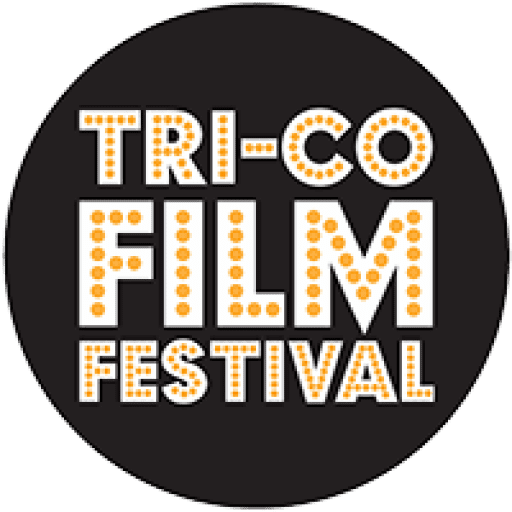by Naren Roy
In case you haven’t heard, Haverford College Visual Studies faculty members Vicky Funari and John Muse organize what has come to be an annual film screening series known as Strange Truth. Not even the 2020 pandemic halted it. Each year, this incredible opportunity—largely funded by the Hurford Center for the Arts and Humanities—brings several films and their makers to the Haverford area for screenings and other special events. Although the ‘who’ and ‘what’ can look pretty different, several things prove consistent for this springtime tradition that leads nicely into the TriCo Film Festival season!
Broadly speaking, participating films can be considered documentary filmmaking—the specialty of Professor Funari who began the event in 2009. Nevertheless, there has been work running the gamut from documentary to narrative fiction/docudrama to experimental and everything in between.
Since its inaugural year in 2009, Strange Truth’s major goal has always been to include films that challenge the form of what (documentary) filmmaking can be.
“A good documentary estranges us from what we thought we knew and offers us a new way of seeing that thing we thought we knew,” explained Funari. In fact, this conceptualization of filmmaking also stems partially from the social sciences’ framework of making the strange familiar and familiar strange and the more broadly construed notion that truth is stranger than fiction. According to Funari, this foundational criterion for Strange Truth films inspired the name.
Sometimes, the film line-up includes newly-finished work. For example, this year participating works including Vivian Kleinman’s No Straight Lines and CJ Hunt’s the Neutral Ground were both freshly-released in 2021. At other times, older films make their way to the Tri-Co, as with this year’s incorporation of two Marlon Riggs films during the second event in the series. In such cases, arrangements are made so that there is someone present who was involved in some way or who is in a position to speak to why the work is still relevant. This year, Kleinman—a former collaborator of Riggs—was able to do just that following the screening of Tongues Untied (1989) and Anthem (1991).
One of the unique parts of Strange Truth is how it contributes to furthering specific academic endeavors in the Tri-Co while remaining broad enough to engage members of the Tri-co and local communities.
Screenings themselves are open to the public at large, and thanks to Haverford being a community partner with the Bryn Mawr Film Institute, since 2015 they are typically held at the theater and
film education center. Especially following 2021’s completely online rendition of Strange Truth thanks to COVID-19, there was a great appreciation for sitting in community with
others while viewing and discussing filmic work—as strangers and friends,
makers and viewers, college folks and community members.
“I felt really distanced from Strange Truth [2021] even though I watched all the films and attended the talks,” said Jalen Martin of Haverford ‘23. “I’m glad to have had the opportunity to watch the screenings and attend the talks in person at the Bryn Mawr Film Institute. I felt more engaged with the events, and more inspired to continue my own film work.”
I couldn’t agree more. And while part of my appreciation also stems from the sheer “movie magic” that is being able to attend a screening in person alongside the maker(s) who spent years dedicated to its craft, it was also fascinating as always to look around at the various folks in the room. Take this year’s final screening + talk with CJ Hunt and Darcy McKinnon. From introductory film students to community members, Haverford College Visual studies minors to Bryn Mawr students who had recently engaged with the nonprofit Monument Lab prior to engaging with the Neutral Ground, there was quite an interesting crowd.
Strange Truth also plays another fantastic role in students’ lives in the TriCo: it (re)introduces them to the idiosyncrasies of the documentary filmmaking and independent cinema worlds by really drawing back the curtain on process. The artistic process is probably always quite most easily learned and developed through experience. Through this program, students can not only engage with filmmakers at the public main events–there also tend to be opportunities for small group round-tables, 1:1’s, and class visits. In this way, students can begin to think about film and the process of filmmaking both through academic lenses and through other practical approaches by meeting and building some connections with those out in the field. Giving students an opportunity to hear about film and film process also from a non-academic side is a large priority for Professor Funari.
“The language of film studies doesn’t always resonate with filmmakers. I’m a filmmaker, and I think the creative process we go through is distinct from the way a scholar would teach a film,” Funari said.
Through Strange Truth, I really believe we have the best of both worlds. Having been to round tables, 1:1s and of course–the carefully curated events for the past two years there has been much inspiration to glean and many “truths” to share. Getting even a peek into how film professionals experience the world is both humbling and affirming, even revealing as it sincerely demonstrates how film professionals were once also nothing more than people with a love of perhaps a small-budding interest in something film-related.
Perhaps Professor Muse said it best: “Filmmakers are people too, and you can talk to them, and they are part of a world of makers that [students] can aspire to being a part of.”Explore the most recent Strange Truth lineup, and several past years of rich history right. Note the collaborations over the years with a diverse range of faculty and departments.
